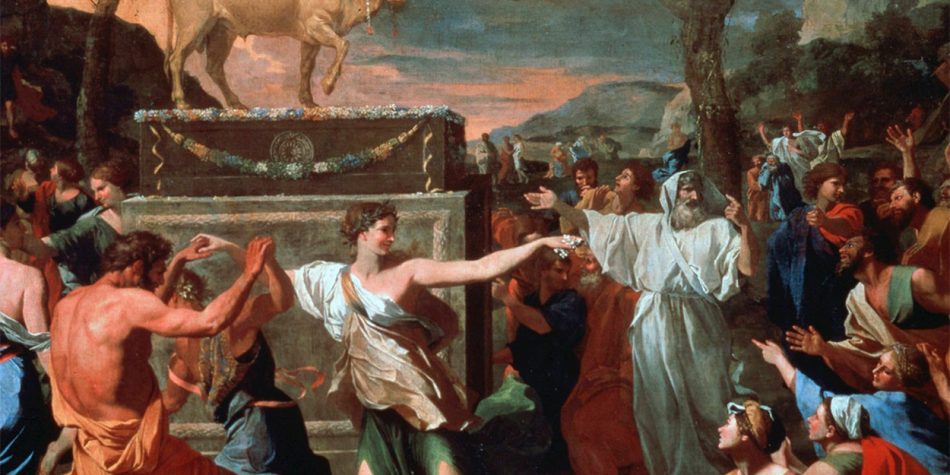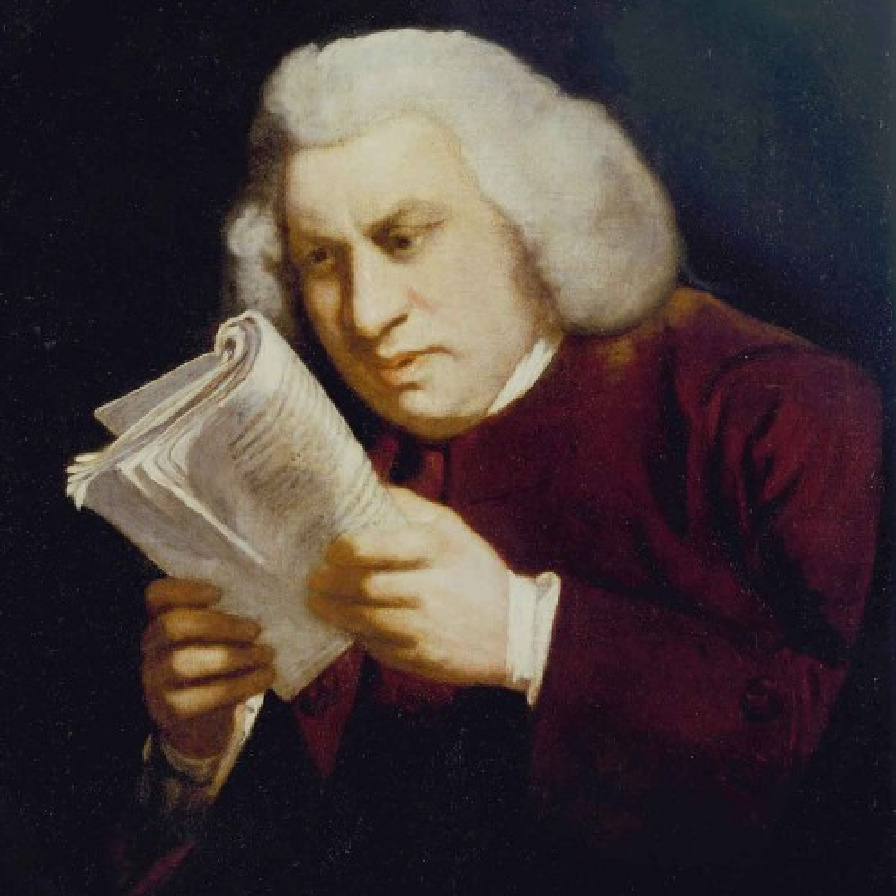My friend—I’ll call him Ben—teaches ethics and philosophy of religion at a local college. I myself am neither a philosopher nor a theologian, but I am a dabbler, and so I’m happy to indulge Ben when he wants to discuss what he’s working on. He does his best to bring things down to my level.
Ben was over for dinner a couple of evenings ago. (I know, I know—but we ate outside and stayed more than six feet apart.) He arrived carrying a stack of articles and papers. “What’s all that?” I asked. “Something you’re writing?”
“Not writing. Not yet. For now, I’m just reading, and thinking.”
“About what?”
“The problem of atheodicy.”
“You mean theodicy? The problem of evil?”
“No, I mean atheodicy. But I suppose it is the other side of the problem of evil, yes.”
“I don’t understand. As I’m sure you know. Please explain.”
Evil surely exists—we see it all around us, and in us—so why would God permit it?
“Okay. I’m just trying to work this out, so it’ll be rough. As Charles Taylor and others have pointed out, this is really the first era in history in which belief in some kind of God or gods has not been pretty much taken for granted. Even now, our unprecedented condition is only beginning to sink in. So the problem of atheodicy hasn’t been much appreciated. But we’re starting to see its effects—every day, in fact, on the news. It’s more than just a philosophical problem.
“What do I mean? Well, start with the problem of theodicy—what you referred to just now. You’re familiar with that one?”
“I think so,” I said, “but let’s see. It’s the problem of accounting for evil in the world—pain, suffering, and especially injustice—while also believing that there is an all-loving, all-powerful God. Evil surely exists—we see it all around us, and in us—so why would God permit it? If He can’t eliminate evil, then maybe He isn’t all-powerful. On the other hand, if He could eliminate it but chooses not to, then he must not be all-loving. But a Being who is not all-powerful or all-loving would not be God. So the existence of evil shows that there is no God. That’s the problem—or the challenge. Something like that?”
“Yes,” Ben said, “basically. And as you know, philosophers and theologians have struggled with that problem for the last two thousand years or more. But not just philosophers—ordinary people too. In fact, my impression is that when people say they don’t believe in God and you ask them why, the most common answer is that if there were a God, He wouldn’t allow for all of this suffering and injustice.”
“Yes, I’ve heard that a lot too,” I said. “Which is why so many religious thinkers have devoted so much reflection to the problem—to ‘justifying the ways of God to man,’ as Milton put it. But I thought you were interested in the problem of atheodicy (whatever that means), not theodicy.”
“I am,” Ben said. “But stick with theodicy for just a moment more. Notice that this is a philosophical problem, but it is also a very practical problem. An existential problem, maybe. Because there are serious consequences to either failure or success.”
“How so?”
“Well, start with failure. Suppose that we can’t come up with any satisfactory way of reconciling the existence of God with the manifest fact of evil. The natural conclusion—the one so many people do in fact draw—is that there is no God. And that conclusion has real and even catastrophic consequences.”
“Like what?”
“Well, I should first acknowledge that most moral philosophers today are atheists or at least agnostics, and also moral realists—people who believe there is moral truth—or right and wrong answers to moral questions. They would say that God isn’t necessary for morality and that it doesn’t really matter much whether there is a God or not. But the more insightful and courageous thinkers—people like Dostoyevski and Nietzsche—would say these kinds of people are just fooling themselves. Rationalizing their complacency. Because in reality, if there is no God, the consequences are huge.”
“For some people, for instance, believing that there is no God can lead to despair. There is no meaning in life. We came about by accident, and we are born and we die, and that’s it. For other people, believing that there is no God will seem liberating—but in a dangerous way. As Dostoyevski said, if there is no God then everything is permitted.”
“All quite debatable, of course,” I replied. “But I happen to agree, so go ahead.”
“Okay. So, now consider what follows if we succeed—if we do come up with a satisfying theodicy. First of all, we may now acknowledge that from God’s loftier perspective, some of what appears evil to us may not be. Even so, evil will still exist (even if it only exists as a privation or negation, as people like Augustine argued), but it will take on a different aspect. One that makes it more bearable.”
“Hmm. Again, you need to explain.”
How would we ever learn patience and endurance and faith—and forgiveness—if there were no evil?
“Evil—suffering and even injustice—will now fit within God’s overall plan. Evil may even be necessary, sort of. Or at least it serves a purpose. Evil serves to test us, maybe, and to strengthen us. How would we ever learn patience and endurance and faith—and forgiveness—if there were no evil? But most importantly, we can live with faith that what is wrong and fallen here can ultimately be redeemed—that God will in His mysterious way bring good out of evil, as Job learned. And so we can acknowledge evil, and we can try to avoid it, and reduce it; but we can still approach the world, including the evil we find in it, with faith, and hope, and love.
“Let me give an example—in regards to what’s probably the most resented kind of injustice these days. I mean inequality. We’re surrounded by various kinds of seemingly unfair and oppressive inequalities. Now, from a Christian perspective, we appreciate that some inequalities may actually be beneficial. I think that’s what Paul was saying in I Corinthians 12. We need there to be different kinds of people with different gifts and different callings; and together we form one body. The hand cannot say to the head, “I have no need of thee,” and so forth. And so we are unequal, and yet all ultimately necessary and equal in the sight of God.
“Even so, many of the inequalities that we observe are in fact oppressive and unjust. So, of course, we should do what we can to correct these injustices. And yet we understand that as long as the world lasts, injustices will continue to exist: you make some progress in correcting a particular injustice and another will often arise in its place. But a person of faith will believe that ultimately there will be redemption and that in the meantime even injustices can serve a valuable purpose if we approach them in the right spirit. This is not just an abstract point, by the way. I’ve noticed that some of the people I admire the most are people who have patiently gone through a lot of suffering and even injustice. They shouldn’t have had to experience what they did—and yet, paradoxically, they are better people for it. Stronger. Wiser. More forgiving. More loving.”
“Interesting. But you still haven’t gotten to what you started with—the problem of atheodicy.”
“Right,” Ben said. “But I wanted to start with theodicy because atheodicy is its mirror image, so to speak. It’s the problem of how to account for evil and injustice in a universe without God.”
“I don’t see why that is a problem. If there is no God, then evil just is. It doesn’t have to be reconciled to anything.”
“Maybe. And actually, that might be the most logical reaction to an atheistic universe. In fact, that is the attitude we often take to the natural, non-human world—the world of animals. We see all kinds of pain and violence—but not evil, exactly, or injustice. We don’t feel moral outrage against wolves for eating deer or sheep. That’s just how things happen to be constituted. If we care about animals, of course, we may try to reduce their suffering, because suffering is still undesirable. But it isn’t unjust. It isn’t evil, in the core sense of the term.
“And I suppose in theory we could take the same attitude toward evil in the human sphere. But hardly anyone does that, or can. Because it seems that we are constituted with a moral sense, or a sense of injustice. (As you know, some people like C. S. Lewis have tried to use this fact as the basis for an argument for God; but let’s not go there for now.) Maybe it’s innate; maybe it’s the result of centuries of living in societies grounded in biblical ideas. Either way, we do seem to have a moral sense, or a sense of injustice. And so we look at the world, and we are convinced that there are rampant evil and injustice. Not just pain. Real injustice.
“So then, how are we supposed to regard this injustice? In a world without God, there is no ultimate purpose in the injustice. And there is no possibility of any ultimate providential redemption. It is just raw, rank, irrational injustice. And so what is the appropriate reaction? Outrage! (And perhaps also despair.) The world is just shot through with injustices, and there is no justification for it being the way it is. Anyone who isn’t outraged is somehow morally deficient. Probably just rationalizing some sort of privilege or advantage that they happen to enjoy.
“Which gets us back, more specifically, to the problem of inequality. We said just now that for a theist—a Christian, we were saying—some of the inequalities we observe may be part of the providential order, and don’t negate our fundamental equality before God. On the other hand, many inequalities are indeed unjust, and we should try to correct them; but we also understand that even these evils can ultimately “work for our good,” and that beyond our limited efforts they will eventually be redeemed. Now, take away God, and that sort of response is no longer available. There is nothing left but to be outraged by all of the rampant inequalities in the world.
“But what makes this problem really serious is that the inequalities are pretty much endless. We start with racial inequality. Then sexual inequality. Then inequalities based on heterosexism. These are the inequalities that people talk most about today, but they are just a start. People are unequal—and suffer as a result—in so many ways and on so many levels. Wealth. Physical appearance—beauty or ugliness. Health. Intelligence. Athletic ability. Musical aptitude. The family they were born into. Wit or personality. Our mutual friend Paolo is just naturally witty— he can say something funny about almost anything—and people like him for that. Me? If I try to crack a joke it will always fall flat; and people groan and walk away. How is that fair?
“Now, the apostle Paul might remind us again at this point that people have different gifts, and we need each other, and we are all part of the body of Christ. And even the inequalities that are oppressive will ultimately be overcome and redeemed. But if you don’t believe in God, you will have no patience for that sort of counsel: it will seem like just another rationalization of injustice, and so will become just one more provocation to outrage.”
“Well, that’s an interesting way to think about things,” I said. “It might shed some light on some of what’s happening in the world these days.”
“That’s an understatement,” Ben replied. “Look at the world, and what do you see? A massive and swelling expression of outrage. Of self-righteous outrage. It may start with some particular injustice, but then it just grows into outrage in general. Raging out—against the society, or the government, or the world.
“I also think the problem of atheodicy helps account for the modern obsession with equality. You’re familiar with what Robert Nisbet said about that?”
“It’s not fresh on my mind,” I admitted.
“Well, you should remember, because I read it in something you wrote. In fact, I have your article right here, I think.” He shuffled through his papers. “Here it is. This is Nisbet:”
[I]t would be hard to exaggerate the potential spiritual dynamic that lies in the idea of equality at the present time. One would have to go back to certain other ages, such as imperial Rome, in which Christianity was generated as a major historical force, or Western Europe of the Reformation, to find a theme endowed with as much unifying, mobilizing power, especially among intellectuals, as the idea of equality carries now. . . . Equality feeds on itself as no other single social value does. It is not long before it becomes more than a value. It takes on . . . all the overtones of redemptiveness and becomes a religious rather than a secular idea.
“Nisbet was right,” Ben continued. “And I think we can see why. Inequalities are ubiquitous, and they are usually disadvantageous to someone. And in a world without God—in a secular world like ours—there can be no justification for these inequalities and evils, and no redeeming purpose or possibility. So the only proper reaction is condemnation. Outrage. Which is what we’re seeing these days, and what we can expect to see more and more of. And wonder what the outcome will be.”
I promised to think this over. I’m still thinking.

















